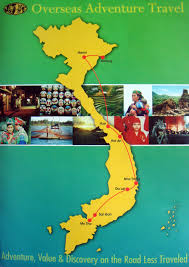By Leonardo Schauer
Long Time Passing: Journeys to Vietnam, a Postcards from Abroad lecture series, sparked an interesting discussion on the horrors of war to current-day issues still plaguing Vietnam.
The Vietnam War, 1954 to 1975, involved a large regional conflict that pitted the communist government of the North against the South, whose principal ally was the United States. Many Americans fought in that war. One of those was College of Southern Nevada’s professor David Schultz.
Schultz recalled his time in Quang Tri Province while serving in the military during the Vietnam War
“I was 16 years old when the Gulf of Tonkin Resolution came out,” Schultz said. “[It said] that our ships had been attacked by the nefarious North Vietnamese Navy… and we had to take a stand. And I thought, wow, I probably need to enlist.” By 1968 he was part of the U.S. Army.
That was a decision he would soon regret and struggle with for many years. It gave him a firsthand view of the horrors of war.
During the presentation, Schultz discussed a picture of a bridge that had been destroyed in North Vietnam—an all-too-common sight for him at the time. He described the absurdity in destroying a link between communities for the purposes of warfare.
“Bridges connect us,” Schultz said. “In a way, destroying a bridge is destroying unity.”
Schultz’s colleague Dr. Bette Brickman, CSN professor of English as a second language, was also at the lecture to share her experiences of a guided tour she took last summer in Vietnam.
Brickman shared her personal photographs with the students. Pictures of colorful markets in Hoi An and the opera house in Ho Chi Minh City peaked interests about what Vietnam is like today.
It started an interesting discussion about the past and present of the country. From the war to now, Brickman commented on how Vietnam is still dealing with many social and environmental issues.
One thing she noticed while visiting was the demeanor of the Vietnamese people who appeared to have a hint of animosity between the Northern and Southern regions.
“As you travel north, people seem much more serious, whereas the South is very relaxed and friendly,” Brickman said. “A lot of [the animosity] still has to do with politics, as the North is more communist leaning. There are even conflicts within families over differences in politics.”
Other remnants of war still affect the Vietnamese people today.
“Unfortunately, the Agent Orange is still in the soil and it causes DNA changes,” Brickman said. “Our tour guide told us he was once apprehensive about having children because he was afraid that they would have birth defects. Fortunately, he managed to have two healthy children, but it’s a very real concern for a lot of people.”
Many efforts are ongoing to assist Vietnam. Volunteer groups and non-governmental organizations work in the country. Rebuilding efforts are still needed even a half-century later.
NGOs provide medical care, prosthetics and various benefits to victims of the war and its aftermath. Clear Path International is an organization working specifically with those affected by explosive remnants such as landmines and cluster bombs. Since 2000, over 12,000 victims have received aid from CPI, according to its website.
“This is a major effort toward reducing the damage of war,” Schultz said. “This stuff doesn’t end when the war ends. This has been going on for decades. Hundreds of thousands of lives have been lost, hundreds of thousands of injuries have occurred.”
Today, Schultz has come to terms with his involvement in the war and draws inspiration from Vietnam veterans and other organizations who dedicate their time to bring humanitarian aid to Vietnam. He is interested in volunteering.
“I think the healing is reciprocal. We help them and our doing that helps us.” By returning to the source of so much pain and suffering as a young adult, Schultz said it would be cathartic for him to embrace the efforts to rebuild.
Dr. Wendy Weiner, dean of the school of arts and letters at CSN, was present at the event and described the series as a great way to expose students to history and culture they might otherwise not know.
“This is a great opportunity for students to learn about other countries if they can’t travel abroad,” Weiner said. “We like to describe the Postcards series by its slogan: Bringing the world to CSN and taking CSN through the world.”




